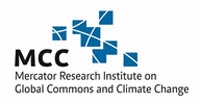How to design city streets more fairly

The paper has just been published in the renowned journal Transport Reviews. “The special thing about this study is that we first present the conceivable fairness principles based on sound ethical considerations,” explains Felix Creutzig, head of the MCC working group Land Use, Infrastructure and Transport and a professor at TU Berlin.
The researchers developed 14 allocation mechanisms, all of them plausible in one way or another, for dividing the roads into car lanes, parking lots, bus and tram routes, bicycle lanes, and sidewalks. They then transferred these concepts to the real world, using the example of 18 streets inside Berlin's S-Bahn circle.
“The need for change is obvious in this central area of Germany’s capital,” says MCC researcher Creutzig: “Only one in six journeys is made by car there, today, and more than half of the households no longer own a car in the first place. Still, 58 percent of public space on the streets are taken up by this traffic mode.”
The study shows the exact current distribution of space on the 18 streets included in the sample, and indicates the changes each of the individual mechanisms for just allocation would entail.
Results vary depending on whether the mechanism focuses on transport efficiency, environmental/climate aspects, or the role of the road as a place to be. However, all mechanisms reveal that parked cars should be given less space, while cyclists should gain space.
In a “tentative interpretation”, the researchers also recommend making sideways wider, especially focusing on the wellbeing of children and seniors. Parking along public roads should be reduced dramatically, and shifted to private spaces instead.
The study includes a striking figure in this respect: Berlin’s current number of 1.2 million cars in the entire urban area would require a car lane of 7.200 kilometres length for parking alone, exceeding the current road network by a third.
“Redesigning urban roads, and aligning them with current requirements, is a major task”, says Creutzig. “Mayors and administrations of cities need a mind-set grounded in fairness and political navigation skills considering the wellbeing of citizens. Our study offers decision-making support in this respect.”
https://www.mcc-berlin.net/en/about/team/creutzig-felix.html
Creutzig, F., Javaid, A., Soomauroo, Z., Lohrey, S., Milojevic-Dupont, N., Ramakrishnan, A., Sethi, M., Liu, L., Niamir, L., Bren d’Amour, C., Weddige, U., Lenzi, D., Kowarsch, M., Arndt, L., Baumann, L., Betzien, J., Fonkwa, L., Huber, B., Mendez, E., Misiou, A., Pearce, C., Radman, P., Skaloud, P., Zausch, J., 2020, Fair street space allocation: ethical principles and empirical insights, Transport Reviews
https://doi.org/10.1080/01441647.2020.1762795
Media Contact
All latest news from the category: Studies and Analyses
innovations-report maintains a wealth of in-depth studies and analyses from a variety of subject areas including business and finance, medicine and pharmacology, ecology and the environment, energy, communications and media, transportation, work, family and leisure.
Newest articles

Largest magnetic anisotropy of a molecule measured at BESSY II
At the Berlin synchrotron radiation source BESSY II, the largest magnetic anisotropy of a single molecule ever measured experimentally has been determined. The larger this anisotropy is, the better a…

Breaking boundaries: Researchers isolate quantum coherence in classical light systems
LSU quantum researchers uncover hidden quantum behaviors within classical light, which could make quantum technologies robust. Understanding the boundary between classical and quantum physics has long been a central question…

MRI-first strategy for prostate cancer detection proves to be safe
Active monitoring is a sufficiently safe option when prostate MRI findings are negative. There are several strategies for the early detection of prostate cancer. The first step is often a…



